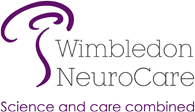Audio Vestibular
Audio Vestibular studies examine hearing and balance.

-
Audio Vestibular Testing
Audio Vestibular studies examine hearing and balance. Comprehensive testing and personalised treatment can help dizziness, vertigo and balance concerns.
- To assess the auditory system (hearing), several tests are performed to assess the integrity of the outer, middle and inner ear, and the nerves which conduct the sounds to the brain as electrical signals.
- To assess the vestibular system (balance), tests are performed to detect and diagnose disorders of the peripheral and central vestibular function, which can cause vertigo, imbalance and dizziness.

-
Auto Traverse Rotary Chair
Wimbledon NeuroCare, leading the future of vestibular diagnosis in Europe.
Wimbledon NeuroCare has invested in a new state-of-the-art Auto-Traverse rotary chair system, the first in Europe, which will support the diagnosis of a wider range of balance disorders with greater accuracy.
This leading-edge system will meet the needs of a diverse range of patients with its expanded testing capability and greater sensitivity in the identification of dizziness, imbalance, or other neurological conditions.
It will also allow the monitoring of changes and improvements in patients balance physiology over time in response to rehabilitation and exercise programmes.
With the latest diagnostic tests designed to study detailed function of the peripheral (inner ear)and central (brainstem)components of the balance system via precisely controlled stimuli and superior data analysis of the Vestibular Ocular Reflex(VOR)function.
Rotary chair testing is the gold standard for confirmation of suspected bilateral vestibular hypofunction but can also aid in the diagnosis of unilateral peripheral vestibular loss due to its high sensitivity at 0.01 Hz sinusoidal rotations.
Rotary chair testing has the advantage of allowing us to evaluate the vestibular system over a wide range of frequencies. This provides clinicians with a more comprehensive insight into the vestibular system by encompassing physiological stimuli in which normal day to day head movements occur.
It is these movements which compensate first in the brain and thus provide a quantitative measure of improvement over time which has previously been very difficult to obtain.

Call our team if you have a query or to book an appointment











